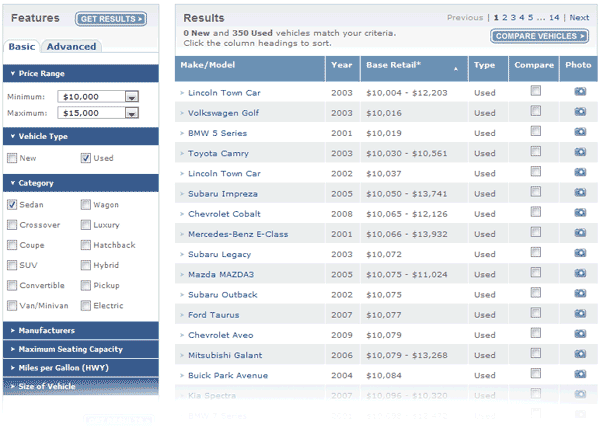The Ultimate Guide to BaoXing Bags
Explore the latest trends and styles in BaoXing bags.
Rev Up Your Car Buying Skills
Unleash your inner car buying pro! Discover expert tips and tricks to negotiate your dream ride at the best price. Rev up your skills today!
Top 5 Essential Tips for Negotiating Your Car Purchase
When it comes to negotiating your car purchase, preparation is key. Start by researching the make and model you're interested in, including the fair market value and the dealer's invoice price. Websites like Kelley Blue Book or Edmunds can provide you with valuable insights. Once armed with this information, you can enter negotiations with confidence, knowing the price range that is acceptable for your desired vehicle. Remember, being informed not only gives you leverage but also helps diminish the pressure of the negotiation process.
Another essential tip is to be ready to walk away. During the negotiation, if the dealer is not meeting your expectations or is unwilling to negotiate fairly, don't hesitate to say no. This tactic can often bring them back to the table with a better offer, as dealerships want to close the sale. Always keep your budget in mind, and don't let emotions cloud your judgment. By sticking to your list of negotiating your car purchase goals, you're more likely to drive away with a deal that works for you.

Understanding the True Cost of Buying a Car: What You Need to Know
When considering the true cost of buying a car, it's essential to look beyond the sticker price. Many potential buyers focus solely on the initial purchase cost, but there are several additional expenses that can significantly impact your budget. These include taxes, registration fees, and insurance premiums. For a comprehensive understanding, it’s crucial to calculate the total cost of ownership, which encompasses these ongoing expenses as well as fuel costs, maintenance, and depreciation. A well-rounded perspective on your financial commitment will help you avoid any unwelcome surprises down the line.
Another important aspect to consider when evaluating the true cost of buying a car is financing. Whether you choose to pay in cash, finance through a dealership, or secure a loan from a bank, the interest rates and terms can drastically alter your overall expenditure. It's essential to compare loan offers and understand how different interest rates affect your monthly payments. Furthermore, be aware of hidden fees and additional charges that may arise during the purchasing process. By taking these factors into account, you can make a more informed decision and ensure that your car purchase aligns with your long-term financial goals.
Is Buying a New or Used Car Right for You? Pros and Cons Explained
When deciding is buying a new or used car right for you, it's essential to weigh the pros and cons of each option. New cars often come with the latest technology, better fuel efficiency, and comprehensive warranties, making them an attractive choice for many buyers. However, they also depreciate quickly, losing significant value the moment they are driven off the lot. In contrast, used cars can provide excellent value, allowing buyers to purchase a higher-end model than their budget would allow for a new vehicle. Yet, potential issues related to wear and tear, as well as a limited warranty, can make used cars a riskier investment.
Ultimately, evaluating your budget, driving habits, and personal preferences is crucial in making the decision. Consider creating a list of pros and cons tailored to your unique situation:
- New Cars: Latest features, full warranties, higher reliability.
- Used Cars: Lower cost, slower depreciation, wider variety.
By thoroughly assessing these factors, you can better determine if buying a new or used car is right for you.